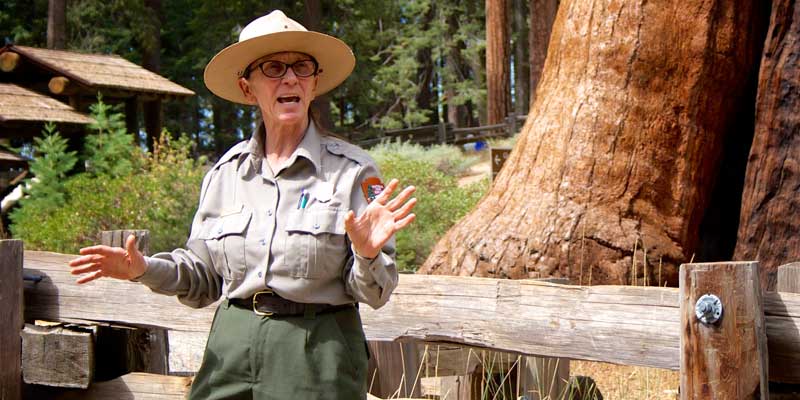Retirement isn’t always the end of our working lives. Many Americans return to work after retirement due to the need for extra income for unexpected expenses, lack of savings, or because of a desire to stay busy. A full 19 percent of people work at least part-time after retirement according to a U.S. jobs report, and many aren’t even retiring at all. With up to 32 percent of seniors expect to be working after retirement by 2022, now is the time to consider the options available.
Finding Your Goals
The first step to determine the best job for you after retirement is to figure out your goals. If you retired early, gaining health insurance through an employer until you reach Medicare age at 65 may be a critical goal. However, for those who retired at or over age 65, the most common targets are extra income and to eliminate boredom.
Whatever your extra income needs are, be realistic about it. Boredom can be a big problem after retirement, especially for those who are single or widowed/widowers. A job after retirement can provide an opportunity for social interaction as well as an activity to keep the senses alert. Another goal that goes along with busting boredom is staying fit. A job after retirement provides a way for seniors to remain active for the sake of health, including to help fight depression.
-
Pet Sitter
-
Tutor
-
Santa or Mrs. Claus
-
Park Ranger
-
Museum Guide/Visitor Assistant
-
Crafts
-
Micro Farmer
-
Tax Preparation
-
Consultant
-
Florist

Being a pet sitter offers a retiree without many family obligations many benefits. Pet sitters either care for pets at the pet owner’s home or temporarily board the pets at their own home. Pet owners prefer this service to traditional boarding which often confines a beloved companion to a small place surrounded by unfamiliar animals. Seniors who become pet sitters get a laid-back job pace, flexibility to pick and choose jobs, and the added bonus of animal companionship without the long-term commitment.
Is history, math, or English a personal favorite subject? Were you a teacher before your retired? Tutoring the next generation can be a lucrative and rewarding after-retirement job. It provides social interaction while keeping the mind sharp and providing help to those who might be struggling in school.
While it is seasonal work, playing Santa Claus or Mrs. Claus can be a fun after-retirement role. The flexibility of schedule, high level of social interaction and high demand for those who look the part make this an attractive job possibility. Bear in mind that there are even Santa Claus schools now and some of the most in-demand Santas and Mrs. Clauses find work outside of the Christmas season with special events.
If you love nature, being a park ranger or other park staff may be just the job for you after retirement. While activity levels may be challenging with some positions, if you have a lifetime of gained knowledge it can be a point in your favor. Interactions with the public to educate, conduct tours, and watch for trouble are all part of typical park staff routines.

Many guides at museums and galleries are volunteers; however, museums and galleries sometimes offer part-time positions. Tour guides, ticket takers, and visitor assistance staff positions are enjoyable after-retirement jobs with low stress and high social interaction.
Turning a hobby into extra cash is a terrific opportunity for retirees. Quilting, sewing, woodworking, even knife sharpening, can all be turned into weekend sales opportunities at local craft fairs. This job also offers the opportunity to travel to shows in other parts of the country if desired.

Local farmer’s markets are spreading like wildfire and providing excellent opportunities for retirees who enjoy gardening. Time in the sun, seasonal work, and low stress make this an enjoyable way for retirees to supplement income while spending time outdoors. Certain crops, like pole beans, herbs and some peppers, need very little room to grow and can provide abundant harvests for a small market grower without the need to be a real farm.
Training to be a tax preparer with companies such as Jackson Hewett or H & R Block is a great seasonal opportunity for those who like numbers. This job has the benefit of being in demand every year with steady work for those who go through the training. Hours are somewhat flexible, and the seasonal nature of the job leaves plenty of time for travel or other pursuits after mid-April.
If you loved your pre-retirement job, continue doing the work by becoming a consultant. Consultants are often highly regarded as they age because of the expectation of years of experience. While you’ll need to brush up on self-employment practices, almost any field has room for experienced workers consulting with companies and individuals on the topics they know best. Another perk is that, per hour, consultants often make far more than they did as traditional employees.
Florists are always in demand, and there are many options to make this work for you. For example, share your talent with a local florist or specialize in a specific type of floral service on a freelance basis. Perhaps you love to make door wreaths. Others excel at comforting families with beautiful funeral sprays or the detail of intricate corsages for proms. Training is available online and at facilities across the country to learn about floral design and the specialized supplies used in the business. While deliveries could involve lifting a significant amount of weight, the design aspect of the work is often done while sitting or standing, so it is not overly physically taxing.

Bottom Line
By using your innate gifts, learned skills, work experience and desire to supplement your retirement income, opportunities are available in many forms for the after-retirement workforce. First, consider what you want to get out of a job:
-
Part-time or full-time based on your need for insurance
-
Existing position within a company or create a consulting position
-
Tapping into your creative skills all year long or seasonally
Then take time to inventory your skills to prepare for your post-retirement job search, or seek a new-to-you job that promises to keep you mentally challenged and excited to once again go to work.


